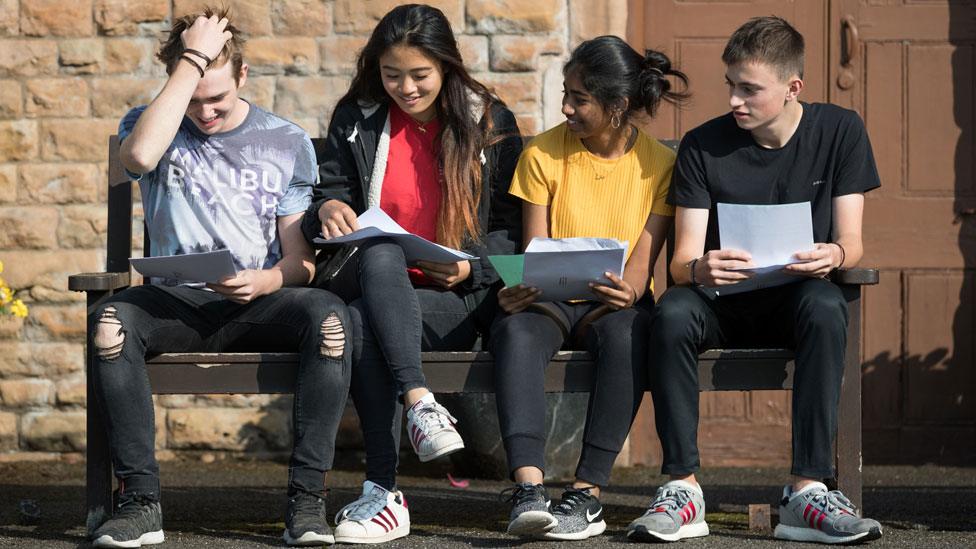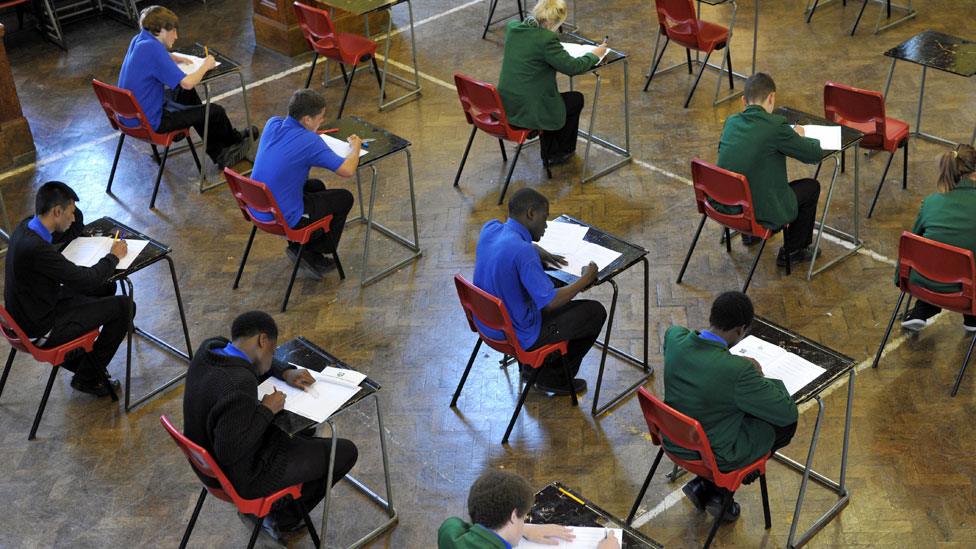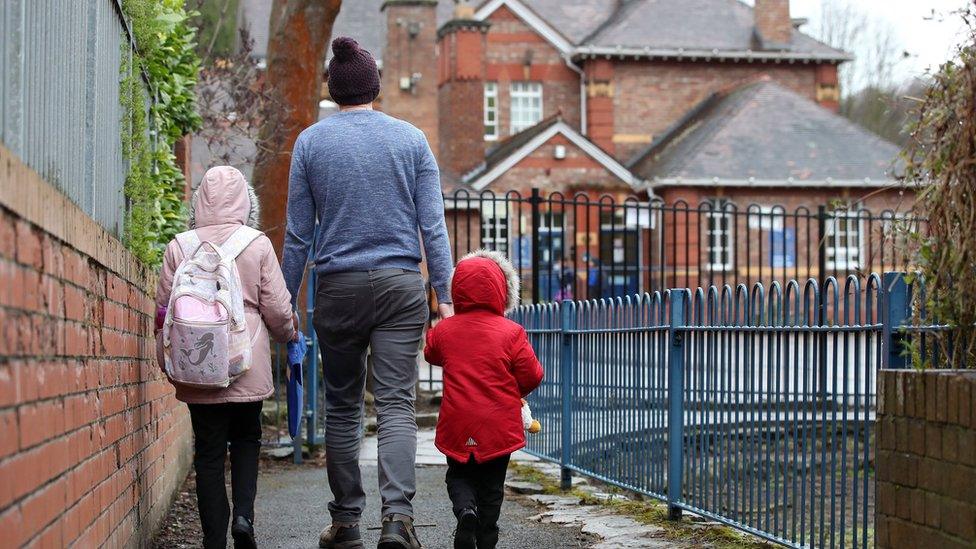GCSE and A-level results 'could be affected by bias'
- Published

Young people in England risk missing out on the grades they deserve, due to the system used for calculating results after exams were cancelled, MPs have warned.
Disadvantaged and ethnic minority pupils face particular risks from the possibility of unconscious bias, said the Commons Education Committee.
This year, teachers will predict pupils' GCSE and A-level grades.
Exam boards then moderate the estimated grades and issue the final results.
This statistical check, designed by England's exams regulator, Ofqual, includes the historic results of pupils at each school, the prior attainment of students, and statistical expectations about grade distribution for each subject.
Similar systems are being used in Scotland, Wales and Northern Ireland.
The aim of this standardisation model is to ensure results are broadly in line with previous years - and guard against a situation where a school could give all of its pupils unrealistically high marks.
Education Secretary Gavin Williamson cancelled GCSE and A-level exams at the end of March for the first time in their history because of the coronavirus pandemic.
The committee received numerous submissions about the possibility that some groups' achievement levels would be underestimated.
It said there was abundant academic evidence of bias on predicted grades, particularly affecting pupils from black, Asian and other ethnic minority groups, as well as pupils from poor backgrounds and those with special educational needs and disabilities.
But the committee insisted the report was not a criticism of teachers, as everyone can be affected by unconscious bias - which is making judgements based on a person's background or race, without being aware of such bias.
Ofqual's deputy chief regulator, Michelle Meadows, told the committee: "There is some evidence of bias.
"For the most able students [with an ethnic minority background], there tends to be under-prediction of the grades that students go on to get. At lower levels of ability, you get the reverse effect where there is some over-prediction."
'No perfect system'
Education Committee chairman Robert Halfon said his committee recognised the work carried out by Ofqual and the Department for Education to mitigate the impact of the coronavirus pandemic on children's education.
He accepted "no system for awarding grades will be perfect".
But he warned: "We have serious worries about the fairness of the model developed by Ofqual.
"There is a risk it will lead to unfair bias and discrimination against already disadvantaged groups."
He also questioned the fairness of the appeals system, which he said seemed to favour "the well-heeled and sharp-elbowed", who know how to navigate the system.
He added that there was a potential for the system to resemble the "Wild West of appeals" with different systems being used by different exam boards.

GCSE and A-level students not happy with the calculated grades awarded this summer can resit in the autumn
The standardisation system, being used by Ofqual, draws on a number of evidence sources to determine whether the grades calculated by teachers are more generous or less generous than expected.
It means the grades each pupil receives in the end may be different from the ones their school has attributed to them.
And the committee called on Ofqual to publish its standardisation criteria, arguing it was only by having a transparent process that pupils could check to see if they had been subject to bias in grade calculations.
The committee also heard concerns about the use of historic school data to modify results which may be unfair to pupils in newer schools or those which are improving.
Association of School and College Leaders' general secretary Geoff Barton said schools and colleges were utterly opposed to discrimination and had done everything possible to avoid unconscious bias affecting grades.
He added: "They have gone about the centre-assessed grades in extraordinarily difficult circumstances and with the utmost diligence.
"They know their students well and have done their best to ensure the grades are submitted to exam boards are fair and accurate."

When will pupils get their exam results for this year?
England, Wales and Northern Ireland
GCSEs: 20 August 2020
A and AS-levels: 13 August 2020
Scotland: 4 August 2020

He added that everyone in education understood the limitations of the system, and that he expected colleges and universities to show generosity in deciding on applications.
An Ofqual spokesman echoed the committee's recognition of teachers' hard work and professionalism in making this year's arrangements work for students.
It added that the standardisation tool was a critical tool to ensure results in different centres are in line with each other and to maintain standards.
"We have extensively tested the model to ensure it gives students the fairest most accurate results," he said.
He added that students, parents, carers and teachers need to understand how their results are calculated and that Ofqual had committed to publishing full details of the model in due course.
A Department for Education spokesman said that Ofqual had developed a robust process that takes a wide range of evidence into account, to ensure grades are as fair as possible for all students.
- Published20 March 2020

- Published22 June 2020

- Published17 April 2020
